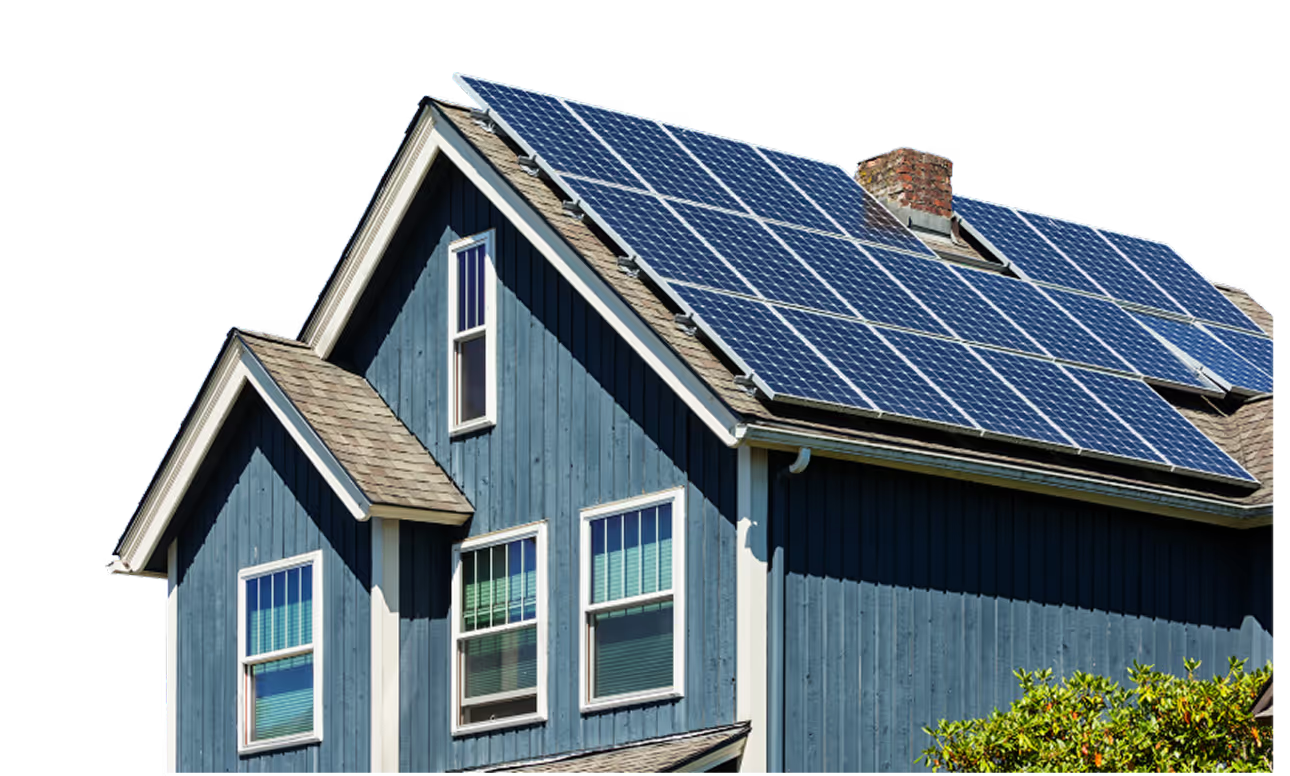
Firstly, What Is Roof Waterproofing?
To simply put, roof waterproofing is basically adding an extra layer of protection on your roof which prevents water from leaking into your home. Roof waterproofing is extremely important when it comes to preserving the quality and longevity of your living space, and the consequences of not fixing a leaking roof can be very severe.
How Bad Can Not Waterproofing My Roof Be?
Not waterproofing your roof goes beyond just mouldy walls and water stains, which on their own are already unsightly & difficult to deal with. Without waterproofing your roof, you are exposing yourself to the risk of water leakage, which can endanger your household’s safety and health.
1. Heavily Compromises Structural Integrity Of Your Roof

As fear mongering as this image seems, a lack of roof waterproofing often does lead to permanent structural damage.. This is due to the high rainfall rate in Singapore, which can cause wear and tear to your roof. Furthermore, accumulated moisture encourages the growth of mould and mildew, which further weakens your roof. Combined with Singapore’s humidity and heat, this leads to roof damage and subsequently water leakage.
2. Hugely Increases Risk Of Contracting Mosquito-Borne Diseases

Water leakage into your home inevitably opens the risk of stagnant water being accumulated in more inconspicuous spots around your home, facilitating breeding grounds for mosquitoes. This could greatly increase the risk of mosquito borne diseases, especially in Singapore where such diseases like malaria and dengue are rife.
3. Increases Susceptibility Of Family Members To Allergies

Last but definitely not least, having extra moisture in your house could lead to growth of mould in your house, which is not only unsightly, but could also cause allergies. Mould spores are a commonly known allergen, which, when inhaled or physically in contact with, can cause symptoms ranging from a runny nose to even asthma attacks!
This is definitely a risk you won’t want to expose you or your family, especially if it can be easily avoided at a relatively affordable price of waterproofing your roof.
How Much Does It Cost To Waterproof My Roof?
In Singapore, the typical market rate ranges around S$25 per sqm for a 500 to 999 sqm surface and S$18 per sqm for 1000 sqm and above. However, there are also other factors to take into account when it comes to pricing, such as the steepness of your roof, whether scaffolding is required as well as the materials used to waterproof your roof.
Common Methods & Materials To Waterproof My Roof
When it comes to waterproofing your roof in Singapore, specialists typically either rely on specifically engineered paints to coat your roof, or membranes. The 7 most common materials to doing so are as follows:
1. Liquid Applied Membrane
Typically used for: Tiled roofs

Liquid applied membranes are very popular when it comes to roofing applications, especially tiled roofs, as its liquid nature enables it to easily reach all nooks and crannies of your roof, ensuring a seamless, waterproofed roof. However, it is of utmost importance to approach a professional roofing contractor for liquid applied membranes, as such membranes can easily tear or damage if the final membrane itself is too thin.
2. Cementitious Waterproofing
Typically used for: Concrete/Tiled Roofs

The most widely used method to waterproof concrete roofs, it relies on coating your roof with a mixture of cement and acrylic materials, which gives it its waterproofing abilities. While cementitious waterproofing is extremely cost effective and easy to apply, it is subject to cracking due to it fundamentally being made of cement.
3. Polyurethane Liquid Membrane (PU)
Typically used for: Flat roofs

Due to its high resistance to stagnant water, polyurethane liquid membranes are the prime candidate when it comes to waterproofing flat roofs. Polyurethane is also a very thorough waterproofing material as it is able to fill capillary cracks, therefore having a much longer service life of 25 years compared to other waterproofing methods. This, however, also means that this method of waterproofing can be more expensive.
4. Bituminous Coating Waterproofing
Typically used for: Metal/Concrete roofs

Bituminous coating, also known as asphalt coating, utilises bitumen-based coatings that are dissolved in either mineral spirits or naphtha and are modified with either polyurethane or acrylic-based polymers to increase its flexibility and durability. While it is highly popular due to its high endurance against UV degradation, as well as its extreme resistance to corrosion, the downside of this coating is that it is made of crude oil which makes it less environmentally friendly.
5. EPDM Rubber
Typically used for: Flat Roofs

EPDM (ethylene propylene diene terpolymer) rubber, commonly used for low-sloped flat roofs, is a synthetic rubber membrane that is both durable and flexible. EPDM also does not need to be torched on and is applied with a bonding adhesive instead, which makes its installation very safe for your roof. EPDM is also extremely suitable for Singapore’s climate as it is very resistant to UV rays, extreme heat and rain.
The only downside, however, is that it may not be as aesthetically pleasing compared to the other waterproofing methods.
6. PVC Waterproofing Membrane
Typically used for: Flat roofs

The benefit of a PVC waterproofing membrane is that it is only a single-ply sheet which requires only one layer of membrane. Being vapour permeable, PVC is effective against moisture accumulation in your roof. Often, reinforced PVC is used for roofs, where it utilises a reinforcing base in the form of polyester mesh or glass fibre.
7. Thermoplastic
Typically used for: Commercial/Industrial roofs

While thermoplastic is one of the more pricier options out there, it boasts a long working life of 50 years, making it one of the most durable waterproofing materials in the market. Thermoplastic, however, is typically only used for commercial or industrial roofs as thermoplastic is best used in situations where one’s roofing assemblies are exposed to contaminants like grease, and in conditions where single ply-membranes like EPDM or PVC will not be able to withstand.
What To Look Out For When Approaching A Waterproofing Contractor
Before diving into this section, it should be prefaced that it is generally not advisable to do waterproofing on your own, especially if you do not have the experience and expertise to do so. This is because some waterproofing materials are not only dangerous to apply on your own (i.e torch on membranes), but the materials themselves might also be toxic in nature. (eg. bituminous is combustible and releases toxic fumes during application).
Thus, approaching the right waterproofing contractor to ensure that your house is properly waterproofed is key. These are some of the key pointers you should definitely look out for when doing so:
1. Credentials And Legality
Before contacting your desired waterproofing contractor, it would be good to do a rough background check on whether they are both licensed and insured, just to assure that they have the necessary permits, licences and legal capacity to operate.
2. Reputation Of Contractor
With the Internet, it is extremely easy to tell which contractors to approach via a quick glance on their business page or Google Reviews page. By doing so, you would be able to understand previous customer sentiments and roughly gauge how professional they are as a business.
3. Specificity Of Quotes Given
One of the best telltale signs on whether a waterproofing contractor is legitimate, is by whether he or she can give you a clearly outlined estimate of how much it costs to waterproof your roof. Often, inexperienced contractors might attempt to offer below-market prices in attempts to quickly close the deal, without providing much detail as to how to go about waterproofing your roof. Be sure to clarify with your waterproofing contractor on what the processes to waterproof your own roof are, as well as previous image references on similar projects so as to provide yourself with ease of mind.
4. Warranty
Last but definitely not least, do be sure that a reasonable warranty is provided at the end of the job so that you can ensure your roof is truly waterproofed for the duration promised. You can expect warranties to range from 5 to 10 years for roof waterproofing.
Our Suggestions
If you are still unsure on who to approach for waterproofing, these are our top 3 personal recommendations that you can consider. These contractors were specifically chosen based on their past projects/clientele base, as well as the quality and quantity of their Google reviews as a gauge for credibility.
1. Hydro-Seal Engineering Pte Ltd.

Established in 1995, Hydro-Seal Engineering Private Limited has completed close to 1000 projects to date. They specialise in residential, commercial and industrial waterproofing and rope access services, and have a team of over 40 professionals. Having esteemed clients such as Capitaland and Suntec City under their belt, you can be more than assured that you will be in safe hands when engaging them for your waterproofing works.
2. SWC Construction Waterproofing Solutions

With over 20 years of experience and a 100% track record to boot, SWC Construction Waterproofing Solutions utilises technology such as thermal detection to determine possible leakage spots in your roof, as well as clear penetrative waterproofing treatment, which ensures that your roof is thoroughly waterproofed and ready to go.
3. Waffen Waterproofing

Waffen Waterproofing prides itself in offering the best before and after sales services, whether it is their free of charge on-site inspection by BCA accredited professionals and contractors, or their guaranteed 12 month warranty and post-sales follow up.
Summary
Roof waterproofing in Singapore is something which is extremely important and overly neglected. Especially with the upcoming rainy season, it is opportune to take the time to consider doing waterproofing to keep you and your family members safe.
In the meantime, if you are considering roof works, why not take the opportunity to explore installing solar too? Solar panels, much like roof waterproofing, are a worthwhile investment for your home. Believe it or not, getting solar is actually cheaper than buying electricity from the grid. Try our online solar assessment tool to see how much you can save on your electricity bills now!

Rent-to-Own Solar for Business with Guaranteed Performance
Immediate ROI




Rent-to-Own Solar. $0 Upfront cost. Guaranteed Savings
(10-Year RTO plan)
+ 10-Year Free Maintenance











